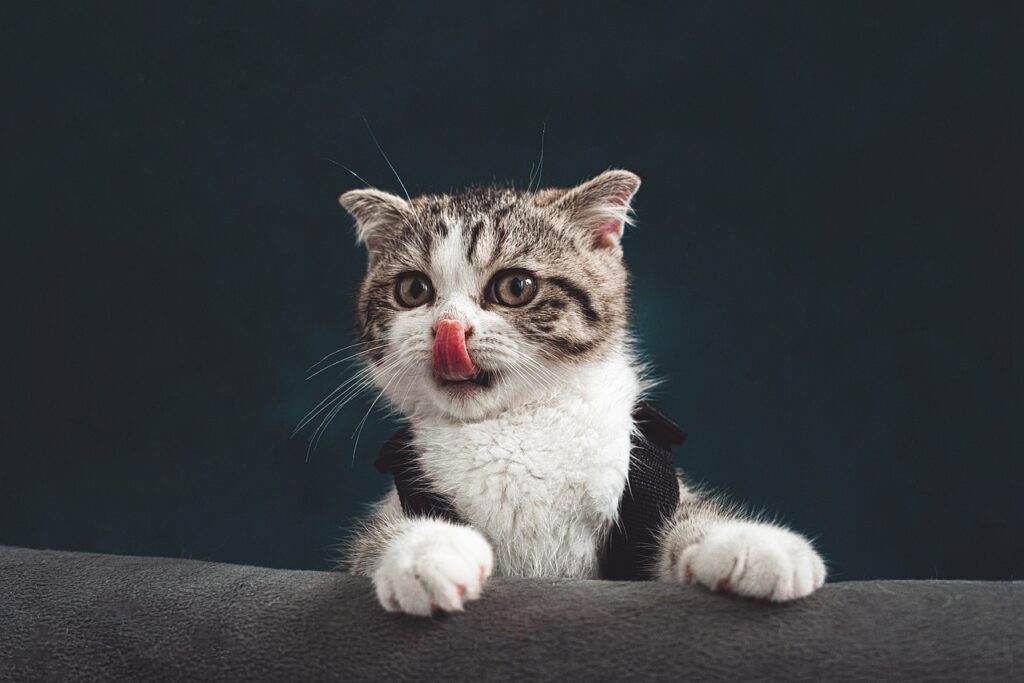Can Cats Eat Corn? – Yes, They Can
Can your feline friends partake in the golden kernels of corn that we enjoy so much? Yes, the direct answer is that cats can eat corn, and they might even find it quite tasty! It’s not uncommon to find corn as an ingredient in many cat foods, as it can serve as a source of carbohydrates. However, before you serve up a corn feast for your kitty, it’s important to recognize that cats have specific nutritional needs different from ours. Cats are obligate carnivores, meaning their diets should be primarily meat-based, so corn should only be given as a treat, not as a substitute for their regular diet.
Can Kittens Eat Corn?
What about the little ones? With caution, the answer is that kittens can nibble on a little bit of corn. Given that their digestive systems are still developing, it’s crucial to introduce any new food slowly and in very small amounts. It’s also essential to ensure that the corn is cooked and easy for the kitten to digest, as their tiny teeth and immature digestive systems may struggle with whole kernels.
Things to consider when feeding corn to kittens?
When feeding corn to kittens, remember that their primary food source should be a high-quality kitten formula designed to meet their rapidly growing needs. Corn can be a nice little treat, but it should never replace their specialized diet. Additionally, monitor kittens closely for any signs of digestive upset, as their bodies may be sensitive to new foods.
Nutritional Benefits of Corn for Cats – Why Corn Is Good for Cats
Energy Source
Corn provides carbohydrates, which can be a source of quick energy for cats. In the right amounts, it can contribute to their overall daily energy needs.
Digestibility
When properly cooked, corn is quite digestible for cats. This means they can break it down easily and use the nutrients effectively.
Fiber Content
Corn has dietary fiber, which can help regulate a cat’s digestive tract and aid in preventing constipation and other bowel issues.
Antioxidants
Antioxidants present in corn, like Vitamin E and beta-carotene, can help protect a cat’s body from oxidative damage, supporting overall health.
Protein Source
While not as rich in protein as meat, corn does contain some protein that can be beneficial as part of a balanced diet for a cat.
Potential Allergies: Can Cats Be Allergic to Corn?
Although corn allergies in cats are uncommon, they are possible. Keep a vigilant eye out for any adverse reactions when introducing corn to your cat’s diet.
Symptoms of Corn Allergies in Cats
- Gastrointestinal Distress: Look out for symptoms such as vomiting or diarrhea, which might indicate a reaction to corn.
- Skin Problems: Monitor your cat’s skin for any rashes, hives, or excessive itching that could signal an allergic response.
- Respiratory Issues: Be attentive for signs of sneezing or coughing after ingesting corn; although rare, these could be symptoms of an allergy.
What to Do If Your Cat Shows Symptoms?
- Immediate Vet Consultation: Seek professional advice if you suspect your cat is having an allergic reaction to corn.
- Diet Modification: Eliminate corn and products containing corn from your cat’s diet under veterinary supervision.
- Close Observation: After removing corn from the diet, watch for improvements in symptoms or any new concerning signs.
Recommended Amount: How Much Corn Can a Cat Consume?
While cats can eat corn, it should only be in small amounts and not a regular occurrence. Treat your cat with a few kernels of cooked corn, ensuring it’s free from salt, seasonings, and butter that can be unhealthy for them. It’s always best to consult with your veterinarian to determine the appropriate amount for your specific cat, especially in light of any health concerns or weight issues.
Things to Consider When Feeding Corn to Cats
Remember that corn should be a treat, not a staple of your cat’s diet. Always prioritize high-quality cat food as the primary meal source, and consider any treats, including corn, as a small addition rather than a substantial part of their daily caloric intake.
How to Feed Corn to Cats: A Quick Guide
Corn, when given to cats, should always be cooked and served plain. Here’s how you can make this occasional treat a delight for your furry buddy.
Plain Popped Corn!
A novel way to share a few corn kernels with your kitty is by popping them without any oil, butter, or salt. Just remember, plain and simple is the key!
Corn Mixture Medley
Try mixing a teaspoon of cooked, plain corn with their usual wet food. This can add a bit of texture and variety to their meal.
Crushed Corn Topping
For a special treat, take a small amount of cooked corn, crush it finely, and sprinkle it over their dry food for a tasty surprise.
Conclusion
In conclusion, while cats can safely eat corn, it should only be in moderation and as a treat rather than a diet staple. Remember to introduce it slowly to their meals and always keep an eye out for any allergies or digestive issues. As with any treat, balance and moderation are key for your cat’s health and happiness.



